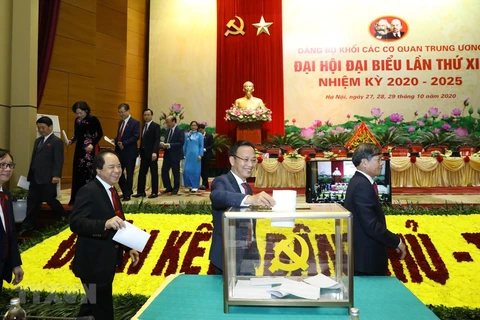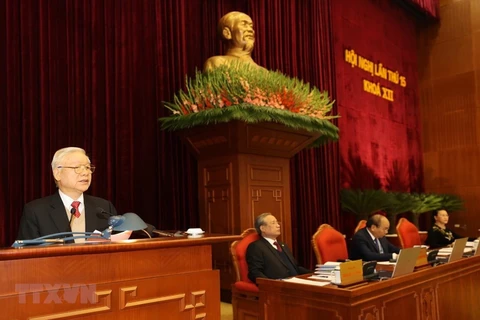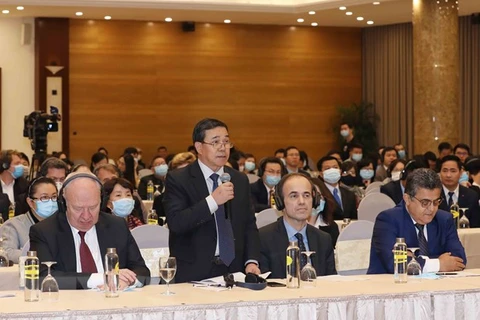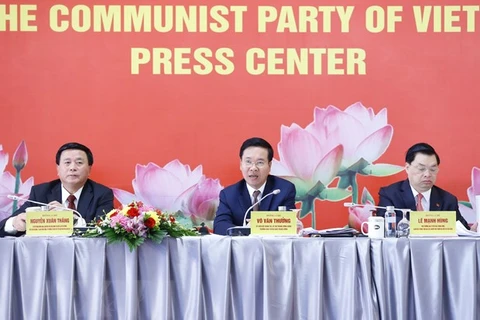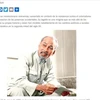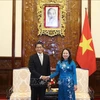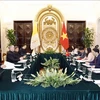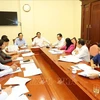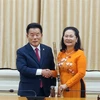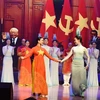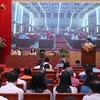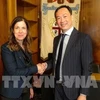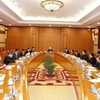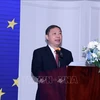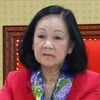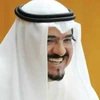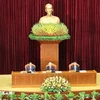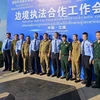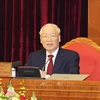 Nguyen Xuan Thang, Secretary of the Party Central Committee, Director of the Ho Chi Minh National Academy of Politics, and head of the Party Central Committee’s Theory Council, addresses at the press conference on January 22 (Photo: VNA)
Nguyen Xuan Thang, Secretary of the Party Central Committee, Director of the Ho Chi Minh National Academy of Politics, and head of the Party Central Committee’s Theory Council, addresses at the press conference on January 22 (Photo: VNA) Hanoi (VNA) – The 13th-tenure Party Central Committee will have a reasonable structure on personnel that ensures stable inheritance and steady transition between generations, deputy head of the Party Central Committee's Organisation Commission Mai Van Chinh told a press conference on the threshold of the 13th National Party Congress on January 22.
Stressing the importance of the personnel work for the 13th tenure, Chinh said that the Party Central Committee and its Politburo and Secretariat have paid special attention to the work right from the beginning of the 12th tenure, with various resolutions and regulations issued.
According to him, the 13th-tenure Party Central Committee is expected to have 200 members, including 180 official members and 20 alternate others. Specifically, about 70 percent of the members are aged from 50-60, below 10 percent of them are aged above 61, and 15-20 percent under 50 years old. Young and female members will account for around 10 percent and 12 percent, respectively.
Regarding special nomination cases, Chinh said that the nomination comes from the practical situation which requires officials standing out in terms of political quality and practical capacity in the Party and among the people.
The 12th-tenure Party Central Committee has had a thorough consideration and selection of these cases, he added.
Nguyen Xuan Thang, Secretary of the Party Central Committee, Director of the Ho Chi Minh National Academy of Politics, and head of the Party Central Committee’s Theory Council, said that in a draft report summarising the implementation of the Party’s Charter of the 12th tenure Party, people-based Party building is a new point.
The Party building is associated with corruption prevention and control as well as mass mobilisation and inspections and supervisions.
According to Thang, Party members and people nationwide contributed a total of 1,400 opinions to documents to the 13th National Party Congress.
Politburo member, Secretary of the Party Central Committee and head of its Commission for Information and Education Vo Van Thuong affirmed that documents sent to the Congress this time are the crystallisation of the Party, people and army, including Vietnamese people living abroad./.
VNA
